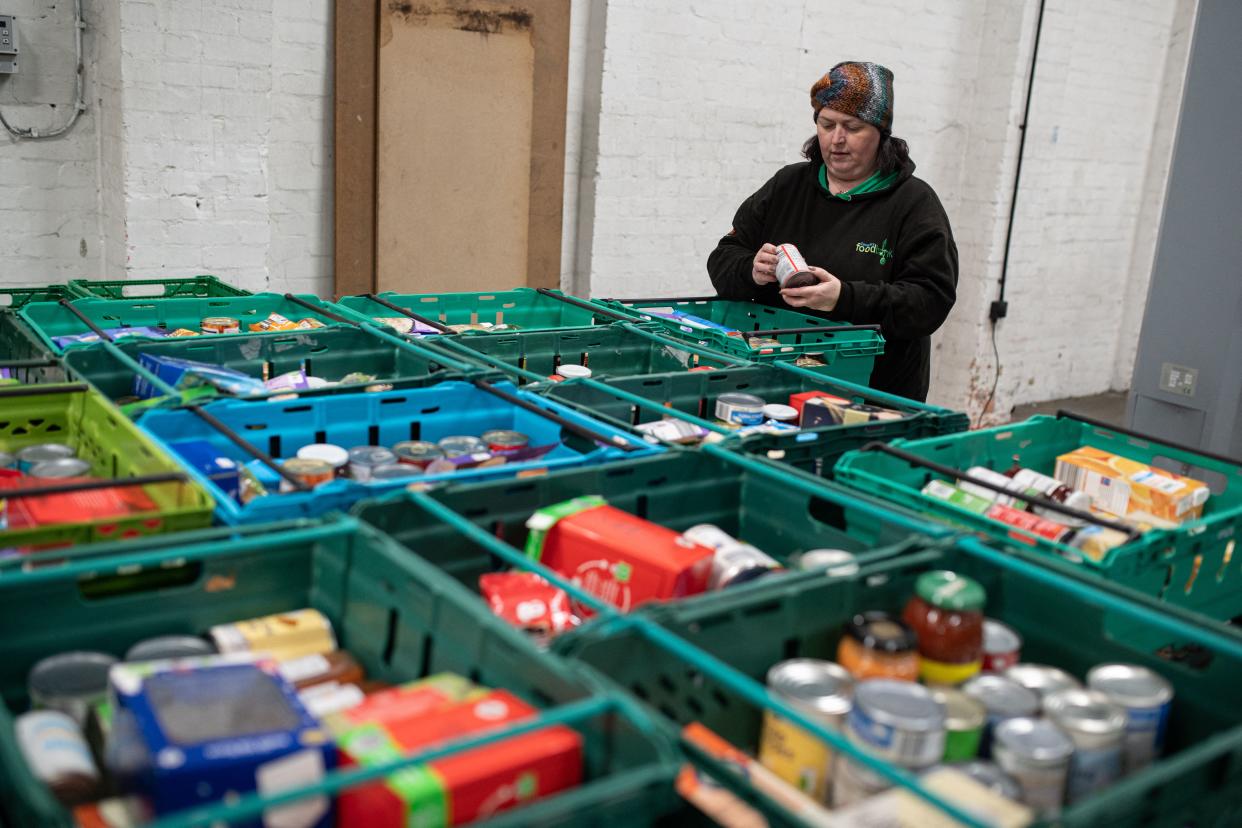Benefits claimants should get new guaranteed increase every year, senior MPs say

Benefit payments are “too low” to cover people’s daily living expenses and need to be increased, according to a damning report from a cross-party group of MPs.
MPs on the work and pensions committee say the government must increase financial support and reform the social security system. It has recommended setting a new standard for benefit levels that takes into account the cost of living.
The committee has also suggested in its ‘Benefit Levels in the UK’ report, published on Thursday, that an "uprating guarantee" be implemented to ensure claimants receive an annual increase in working-age benefits and local housing allowances.
It says: "We recommend the Government commit to an ‘uprating guarantee,’ to uprate benefits annually with a consistent measure, for example prices. We also recommend the Government uprate the Local Housing Allowance rate each year so that it retains its value at the 30th percentile of local rents."
Sir Stephen Timms MP, chair of the Work and Pensions Committee, said: “We have heard plenty of evidence that benefits are currently at a level that leaves many unable to afford daily essentials or meet the unavoidable extra costs associated with having a health impairment or disability.
“The government has previously said that it is not possible to come up with an objective way of deciding what benefits should be. Our recommendations are a response to that challenge, and the ball is now back in the government’s court.”

Heating is a 'luxury'
Several people interviewed for the report expressed their concern that benefits were too low, and shared their struggles in affording basic necessities like food and heating for their homes. One person even considered heating as a "luxury," and said they would wait until their hands were too cold to turn a page before turning on the heating for an hour.
Another person who spoke to the report's authors shared the difficult budgeting choices they had to make, saying: "We can't tighten our belt in any more ways... so effectively we're sort of going without food in one area to cover the cost of something else without heating somewhere."
Those who received support in the form of Personal Independence Payments said they were forced to use the money they receive to support their health condition or disability expenses on everyday, basic costs such as food bills. One participant noticed the positive impact of the benefit levels increasing in April 2023 following uprating, even though they still struggled financially.
Another shared that, after a PIP review, they were moved to the upper level of support for mobility and daily living. For the first time, they experienced some relief and were able to use PIP for different health-related expenses.
One disability benefit recipient suggested that benefit payments should correlate to the additional costs they incurred: “The standard PIP for Mobility [is] £26 a week. That really does not go far in taxis or running a car, and just all the numbers seemed to be plucked out of thin air instead of having any actual foundation and basis for them.”
Watch: Mothers begin hunger strike at Parliament for parents who cannot feed children
How can things improve?
In the report, MPs highlight a series of suggestions to improve the current benefits system.
This includes making the household support fund permanent for people in financial distress and changing the housing element of Universal Credit (UC) to align it with inflation. The report added that benefit levels for carers should be increased, and the Carer's Allowance should be linked to the National Living Wage. It was suggested that the five-week wait for UC should be eliminated so that claimants do not have to rely on a loan.
A claimant told the report that UC was just one aspect of a larger system that could help people improve their standard of living and that it should be considered in conjunction with factors such as the minimum wage and the availability of quality employment opportunities.
Others said payments should help cover the costs of everyday essentials, including food, heating, electricity and the internet. Another person added: “I think it should absolutely, at a minimum, cover the destitution line. If we’re not paying enough that people are not destitute, then there’s something badly wrong with the system that’s supposed to be helping people”.
A disability benefit recipient said payments should increase with additional costs they incurred. Participants also suggested simplifying the procedures for reevaluating individuals with permanent conditions.
The report suggested implementing a three to six month "cushion" for claimants who start working. This cushion would allow their benefit payments to resume under the same conditions as before if they lose their job during that period.
The committee has recommended adopting the Joseph Rowntree Foundation (JRF) and Trussell Trust's essentials guarantee methodology. These organisations have projected that Universal Credit will still be deficient by £30 per week from the amount required to sustain basic living standards, even after the benefits increase in April.


